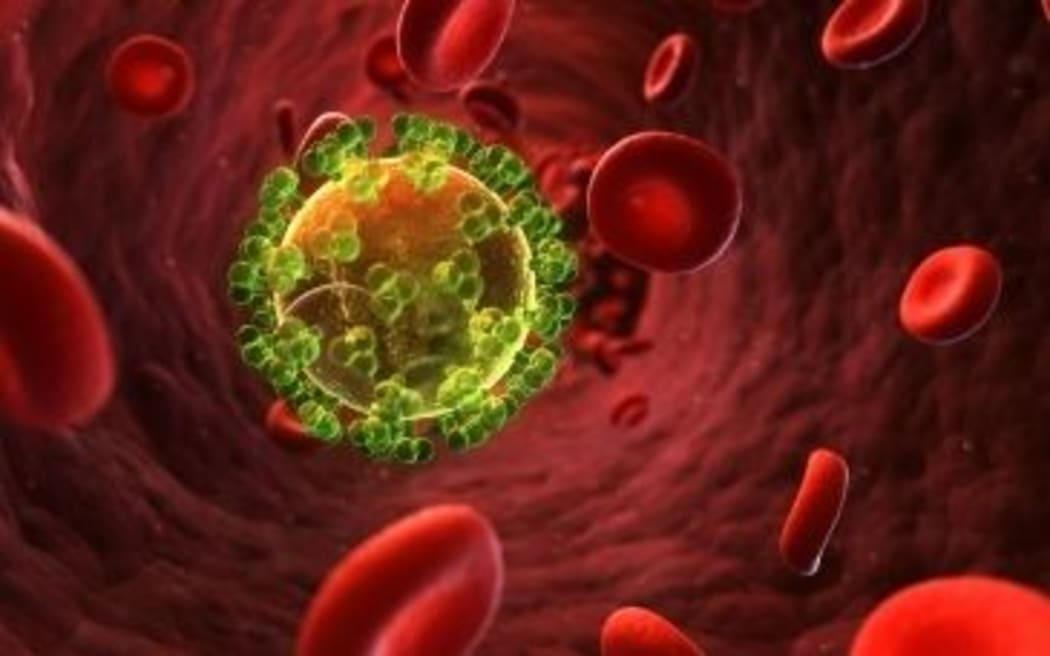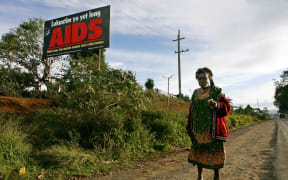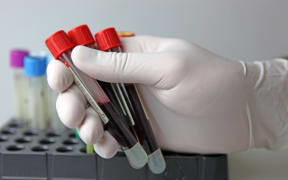Australian scientists' claim that it's successfully beaten AIDS is being labelled dangerous and misleading by AIDS researchers and organisations in New Zealand.
The number of Australians being diagnosed with AIDS each year was now so small that researchers from the Kirby and Peter Doherty institutes and the Australian Federation of AIDS Organisations have announced the age of the fatal syndrome over.

The number of AIDS diagnoses in New Zealand is close to zero despite a continually high trend of new HIV infections. Photo: 123rf
AIDS cases in Australia have plummeted since the advent of anti-retroviral medication in the mid-1990s, which stopped HIV from progressing to AIDS - where the immune system was so badly damaged it could not fight off infection.
At its peak in the early 1990s, about 1000 Australians died from AIDS each year.
However, Professor Andrew Grulich, head of the HIV Epidemiology and Prevention Program at the Kirby Institute, said the number was now so low it was not even recorded.
New Zealand was following a similar trend, with just nine cases of AIDS reported last year.
But the number of HIV infections is rising - 224 cases were recorded last year, up from 217 in 2014.
Australia's claims are alarming, University of Otago AIDS epidemiology group lead researcher Sue McAllister said.
"The article from Australia was quite misleading, almost dangerously so, saying that AIDS is no longer a public health issue because many people do not distinguish between AIDS and HIV."
It could lead to more people becoming infected, she said.
"It could lead to more complacency around thinking that it's no longer important, or we don't have to take care or use condoms, or we don't have to have tests to see whether we are HIV positive. I think there is that danger."
University of Auckland senior research fellow Peter Saxton said New Zealand's HIV epidemic was relatively small compared to other countries.
With more funding New Zealand could be the first country in the world to eliminate the virus, he said.
"The epidemic itself is swelling larger and larger but the exciting thing is we have got a range of new tools that if activated could prevent transmission within 15 years."
Earlier HIV screening, access to anti-retroviral drugs as soon as people are diagnosed, and government funding for a pill that could prevent HIV being contracted for those most at-risk were all needed to achieve that goal, Mr Saxton said.
"What we really need now is for government to release more resources to those communities and professionals so we can have the right mix of interventions."
An Auckland-based project that would evaluate how the prevention pill, or pre-exposure prohylaxis (PrEP), would be accessed and monitored was currently awaiting ethical approval.
Aids Foundation general manager of operations Nick Laing said that would run for about two years.
"Hopefully it will provide us with evidence to help with the funding argument to enable us to get people who are at high risk access to it," he said.
Drug buying agency Pharmac said it was aware of the World Health Organisation's recommendation to treat HIV positive patients with anti-retroviral drugs as soon as they were diagnosed and had ranked it as a medium priority.
"That means that it is being assessed against all other funding options. We continue to keep this funding option under review as the relative priority of funding one medicine compares with other medicines can change over time," Pharmac said in a statement.
"Details like the relative health benefits, the amount of funding available and new clinical data are examples of factors that may change the relative priority of funding choices."
The foundation said it would keep pushing for anti-retroviral drugs to be given to all HIV positive patients as soon as they were diagnosed.
Data from Otago University's AIDS Epidemiology Group says 224 people were diagnosed in 2015, a similarly high figure to the year before.
Of those, 153 people (68 percent) were men who have sex with men, while 25 men and 17 women were heterosexually infected.






